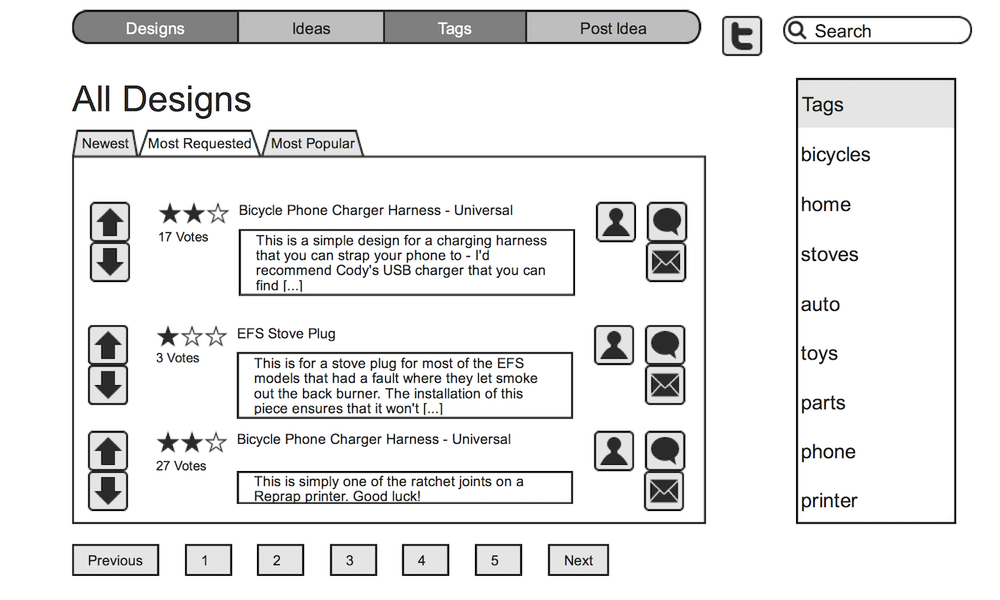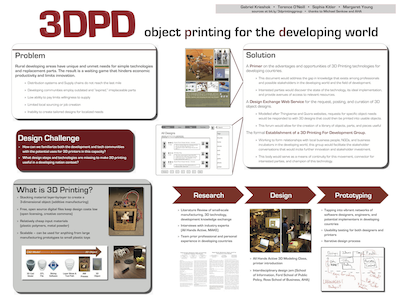3D Printing for Social Good
Recently I helped to facilitate a TechChange course on 3D Printing for Social Good.
To get a sense of what 3D printing can do in the world of prosthetics, John Schull from e-NABLE was kind enough to give a short introduction to their work recapping the work of e-NABLE.
In the spring of 2012 I worked on a project (along with three other graduate students at Michigan) to develop a policy-centric introductory guide to 3D printing for international social good targeted at government, non-profit, and entrepreneurial organizations.
We also promoted the work through this short video done with the help of the School of Information staff – expoSItion: 3D Printing in the Developing World (video).
We developed the seeds of a ‘primer’ that could be used by NGOs, governments, organizations, and local maker-spaces to start to explore what the context of 3D printing in the developing world could/would/should look like.
We produced a this poster and the School produced this video around our work (related to the presentation competition ‘expoSItion.’
Imagining a 3D printing design community that matches need with skill
3d-printing technologies have glided almost admirably down the slope of the hype cycle curve of technological innovation. While they are not going to be a magic bullet to up-end global inequality, nor the beginning of a wholesale manufacturing revolution—they are nonetheless finding their niche in education, hobbyists, start-ups, and designers.
As we try to straddle that line between technological opportunity and quantifiably good impact for people—I wonder if there is a niche of use that is still untapped with 3d-printing.
Stack Overflow-style forum
When I was still at Michigan working with teams to update ideas around 3D Printing for Development, I came up with a side project that I thought had some merit.

Specifically, the idea was to basically focus the efforts of designers and builders over at sites like Thingiverse into producing and iterating on solutions to problems that they might not otherwise be familiar with—namely, those being faced at community levels and by individuals who themselves could articulate what solutions for 3d-printed products could look like, but not design them themselves.
The features of this platform would be pretty straightforward in terms of being able to host profiles and skills. But the crux would be in sorting things via tags, in being able to build and mashup from existing designs, and the abilities to rate and flag various items along the way by any user.
Organizations
I am really interested in organizations who are already thinking about this – I think that Field Ready is the most notable, and the furthest along. But their scope is still (wisely) narrowly scoped to disaster response, and not to broader communities where ideas and communities could be connected, developed, and iterated.
Connecting the dots today
Is there actually any need for this? Aside from Google searches – I’m just not sure that such a community actually exists.
It’s more about the challenges of creating communities than it really is about creating such a platform–even if I liked the initial volley at creating the platform.
Where could this possibly work today?
I’m seeing one possibility perhaps on Twitter – it keeps the lowest common denominator around in terms of requests. Although I do still like the idea of voting. Argh.
It looked like the Meteor Reddit community project is no longer in it to win it. What about the Stack Exchange model that I liked so much?

